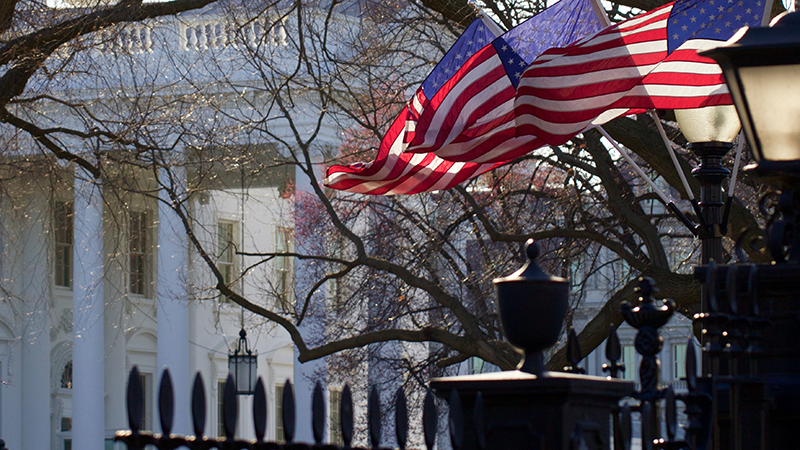
As president-elect Donald Trump prepares to move into office next month, at least two “czar” appointments have rolled in so far – one for border issues and another covering AI and crypto.
But what if there was a “quantum czar?” There’s been no movement as of yet from the incoming administration on that front, but Federal and private sector quantum experts this week talked around that idea and what they hope to see in quantum science leadership from government over the next four years.
Speaking during a Hudson Institute panel discussion on Dec. 9, officials said their top hopes for the incoming administration include moving toward quantum use cases and increased funding for the quantum ecosystem.
Someone who can help build public-private partnerships and break down silos in quantum advancement between Federal departments would benefit U.S. quantum leadership, Ryan McKenney, the general counsel of compliance and director of government relations at Quantinuum, said.
“Someone who can come in and work across agencies, someone from the business community willing to shake things up, I think, is absolutely important,” said McKenney. “Someone who understands government and can sit in Washington with an understanding of the business community while also knowing how to get things done across government agencies is key.”
McKenney also suggested putting the top government quantum position under the National Security Council – an advisory body within the White House tasked with advising on national security and foreign policy – to increase interagency collaboration.
Allison Schwartz, the vice president of global government relations and public affairs at D-Wave Quantum Inc., agreed with McKenney and noted that thinking outside of the box is important to advancing quantum science and technologies.
“The person should not have actually been involved in building quantum policy for the past five, six years – it needs to be a new thinker,” said Schwartz. “I think that this person, one of the main roles that they should do is play devil’s advocate.”
“Why are our allies and other folks that are nefarious actors thinking about quantum policy and quantum programs differently than us, what if we’re wrong? Because right now, there’s an ecosystem within the quantum groups … that are all singing off the same hymnal, and there’s nobody saying, what if you’re wrong,” she continued.
Using current approaches to quantum, the United States risks falling behind in quantum innovation as nations like China, Japan, and Canada take diverse, application-driven approaches, leveraging the technologies and capabilities available today rather than waiting for future breakthroughs, Schwartz warned.
Rima Oueid, the senior commercialization executive at the Department of Energy’s Office of Technology Transitions, said that understanding supply chains is an additional important characteristic of a future quantum czar and is “another nugget of potential successes” that could help the “community quantum thrive.”
“The supply chain aspects of quantum can also support laser technology and other types of technology in pharma and medical devices,” said Oueid. “We could develop the quantum industry here, but we should also be developing the supply chain here, and that broadens the market opportunity.”
Last week, Trump announced the appointment of Silicon Valley investor David Sacks as his “White House A.I. & Crypto Czar” in a series of posts on social-media platform Truth Social. The appointment comes as the president-elect moves toward what some expect to be looser AI regulations while rolling back provisions of the Biden administration’s executive order on AI.
